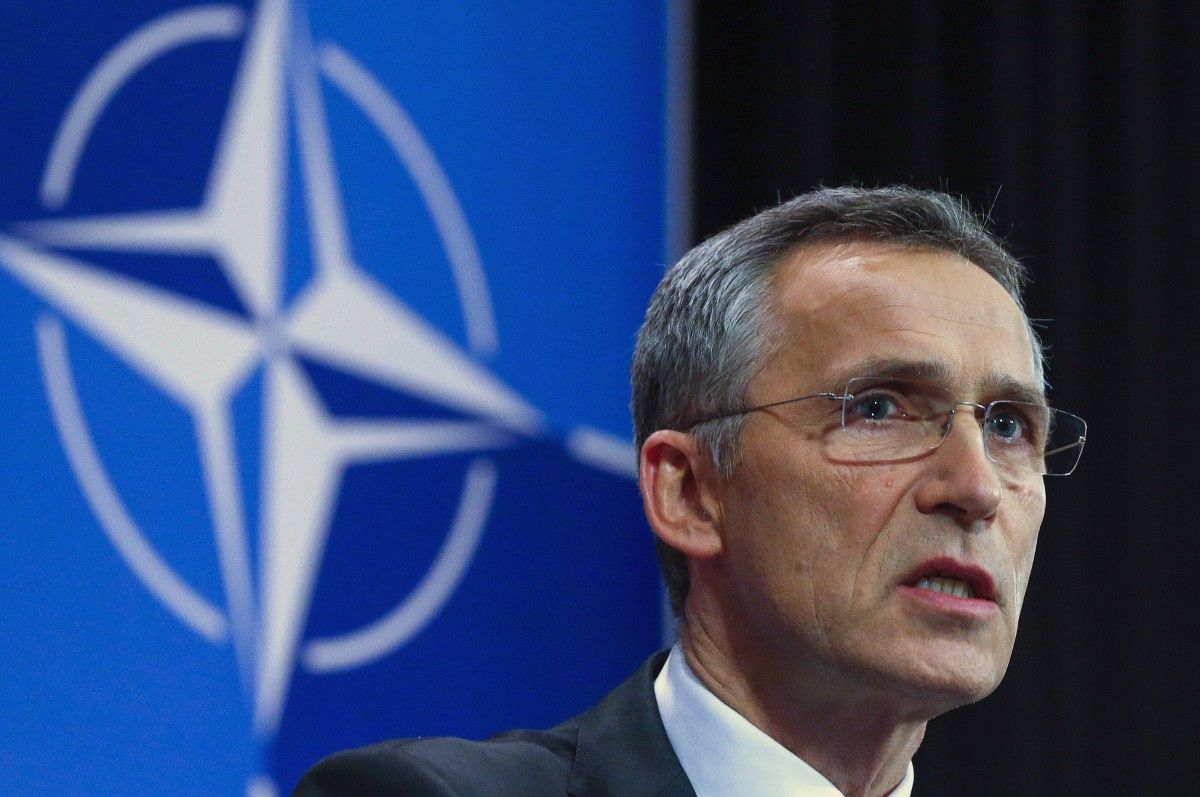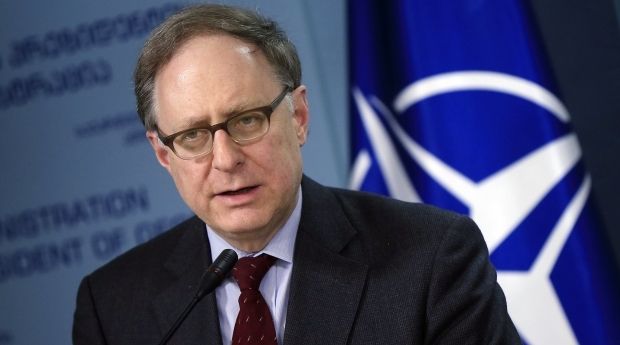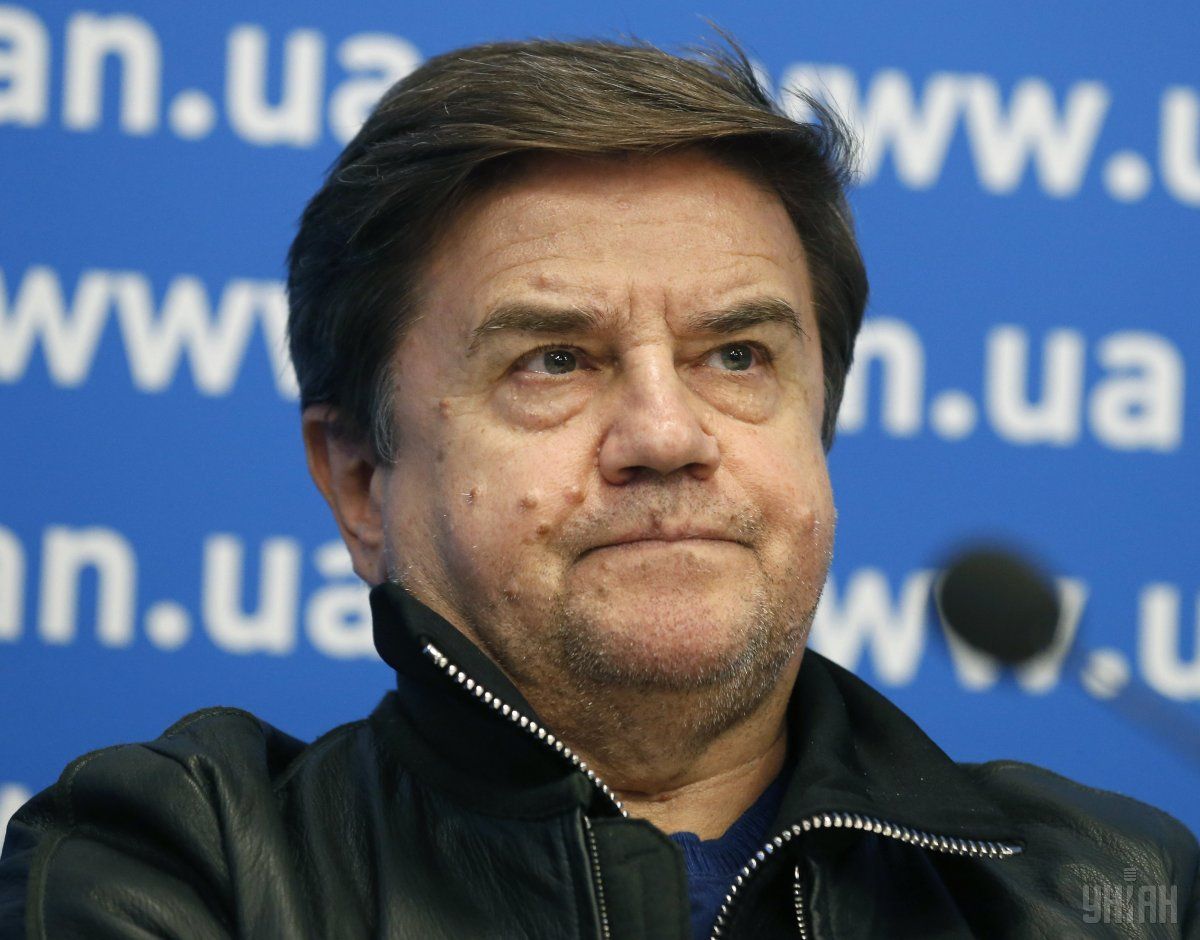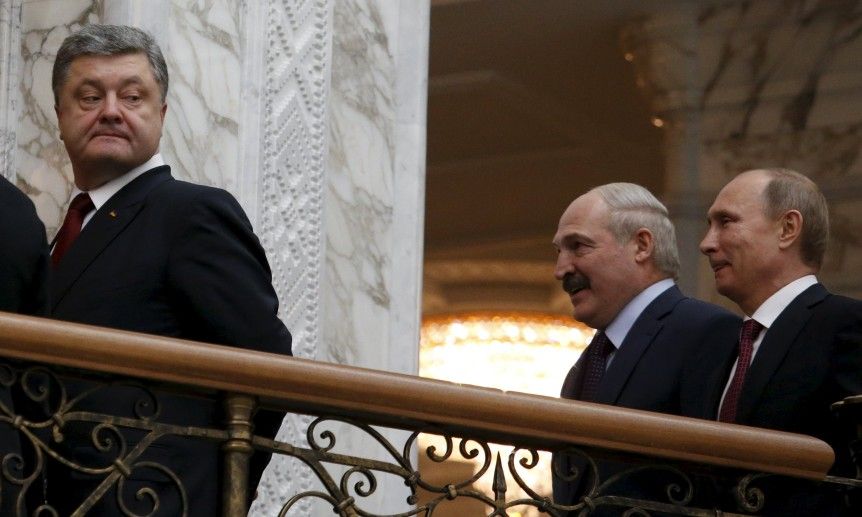
NATO-Russia meeting of "sworn friends"
On April 20, for the first time in two years since the beginning of the illegal annexation of Crimea by the Russian Federation and the beginning of Russian armed aggression against Ukraine, a meeting is held of the NATO-Russia Council.
In early April, NATO Secretary General Jens Stoltenberg made a statement in which he said that after consultations with Russia, it was agreed to hold a meeting of the NATO-Russia Council at Ambassadorial level. The NATO chief elaborated on the agenda of the meeting, involving “the crisis in and around Ukraine and the need to fully implement the Minsk Agreements.” “We will discuss military activities, with particular focus on transparency and risk reduction,” said Stoltenberg. “We will also address the security situation in Afghanistan, including regional terrorist threats.
Stoltenberg stressed that the meeting “is the continuation of our political dialogue, as agreed by NATO Heads of State and Government.”
At the same time, Stoltenberg stressed: there will be no return to traditional relations until Russia starts respecting international law.
The council was set up in 2002 to create a forum for dialogue on security issues between NATO member states and Russia, and the decision on the termination of the Bloc’s cooperation with the Russian Federation was adopted April 1, 2014. NATO Foreign Ministers stated back then: ”We have decided to suspend all practical civilian and military cooperation between NATO and Russia. Our political dialogue in the NATO-Russia Council can continue, as necessary, at the Ambassadorial level and above, to allow us to exchange views, first and foremost on this crisis”
The meeting amid growing tension
Only in February 2016, in Munich, did the parties return to the possibility of holding a NATO-Russia Council meeting. Relevant negotiations were held on the sidelines of the international security conference. However, Stoltenberg said that at the meeting, NATO officials are willing to talk about Ukraine.
Deputy Secretary General of NATO Alexander Vershbow visited Ukraine ahead of the meeting noting that it should not be seen as a diplomatic blow to Ukraine. Moreover, the security situation in the east of Ukraine, as well as features of Russia's aggression against Ukraine has been discussed by the NATO-Ukraine Commission at the Alliance headquarters in Brussels on April 19.
“NATO will reiterate its insistence on full implementation of the Minsk agreements when the NATO-Russia Council convenes next week”, Mr. Vershbow said.

He recalled that after the freezing of relations with Russia two years ago, diplomatic channels remained open. Actually, according to Vershbow, NATO should maintain contact with Russia, despite formal termination of cooperation with Russia. Speaking at the Kyiv Security Forum, the official said NATO had no choice but to stop cooperation with Russia after the annexation of Crimea, but he noted that, from time to time, meetings with Russian Foreign Minister Sergey Lavrov are held, which is the way to maintain relations with Russia in a situation where the Alliance cannot resume cooperation.
At the same time, on the eve of the Council meeting, it is undeniable that Russia has been strongly provoking the Alliance. In early April, Russian fighter jets carried out two simulated attack passes close to the USS Donald Cook in the Baltic Sea. Stoltenberg condemned the incident, calling the actions of the Russian pilots “unprofessional.”
In turn, U.S. Secretary of State John Kerry said that the U.S. destroyer could have opened fire according to the regulations, responding to "dangerous" and "provocative" maneuvers of the Russian warplanes. However, the Russian Defense Ministry countered that the Russian Su-24s did not violate international rules.
Also the fighter jets of the NATO air police mission in Baltic States intercepted the Russian warplanes twice over last week in the neutral airspace over the Baltic Sea twice climbed to intercept the Russian planes flying in the international zone of the Baltic Sea. In general, according to the Ministry of Defense of Lithuania, NATO planes scrambled to identify 160 Russian military aircraft flying over the Baltic Sea, which, compared to 140 aircraft in 2014, points to a marked increase Russian aerial activity in the region. Moreover, there was already more than enough such cases in 2014, after the deterioration of relations between Moscow and the Western countries, due to the annexation of Crimea and the Russian military aggression in eastern Ukraine.
Resuming contacts
Anyway, the NATO-Russia Council meeting is taking place despite the incidents. And, according to the political scientist, Director of the Institute of Global Strategies Vadym Karasyov, it indicates a recovery of political contacts in the first place. "There was a timely warning from the NATO leadership that they are talking only about the diplomatic contacts, and no military cooperation is considered," he said.
The transformation of the OSCE mandate, from a monitoring, supervisory format to an armed mission to help improve security in the occupied territories is a certain pragmatism of relations between the West and Russia
According to the expert, to a certain extent, this is recognition of the fact that there are too many problems in the world that can’t be addressed by NATO alone. The expert believes that the meeting will cover the issues of selective cooperation to address certain problems common both to the West and Russia. "Apparently, Putin is also ready to some compromise. For example, the armed OSCE mission in Donbas. The transformation of the OSCE mandate, from a monitoring, supervisory format to an armed mission to help improve security in the occupied territories is a certain pragmatism of relations between the West and Russia," says Karasyov.
However, one wrong "move" can become a source of dramatic confrontation.

Among other things, the political scientist predicts that at the Council meeting will also see discussions on the issue of the increasing militarization of Crimea, as well as rumors of a possible deployment of tactical nuclear weapons in the area, as it changes the balance in the Black Sea region.
In turn, director of Da Vinci AG analytical group Anatolii Baronin believes that the meeting is nothing but an attempt to keep in touch and participate in the talks because Russia's position on some issues is becoming more and more radical. "We see some provocative actions by Russia, in particular of its military aircraft, its spans near NATO warships in the Black Sea and the Baltic Sea. In this case, the Alliance needs a platform to communicate with the Kremlin and obtain information, assess the future prospects and the actions of the Russian Federation," he says.
At this, Baronin rules out that it’s about some kind of normalization of relations, or that this meeting is a certain concession to Russia on the part of the Alliance. "Last week, I took part in the talks with NATO Deputy Secretary General Alexander Vershbow, and I can assure you that the Alliance does not remove Ukraine from the agenda as a priority issue for the European security, the issue of negotiations with Russia, and as a condition for the normalization of the relations of the Alliance, the United States and EU with Russia," he said.
The meeting is nothing but an attempt to keep in touch and participate in the talks because Russia's position on some issues is becoming more and more radical
As for the meeting, the expert suggests that it is unlikely any significant progress will be observed: NATO will not make any concessions to Russia. And, of course, once again an issue will be raised again of a more active participation of Russia in the settlement of the situation in Donbas, since the implementation of the Minsk agreement depends solely on the Russian Federation and further progress on the Minsk road map is hindered by the Kremlin's stance. "The Kremlin in no way interested in the implementation and execution of all the provisions of the Minsk agreement. It profits politically from continued tension, it makes use of the crisis in Ukraine, trying to raise the stakes and get itself involved in the process of international negotiations. It wants the West to count with it as with a key geopolitical power. Therefore, we certainly cannot say that Russia will change its position and fulfill the Minsk agreements," he said.
Not that bad, not that good
A political analyst at the Institute of Euro-Atlantic Cooperation Volodymyr Horbach doubts that the meeting of the NATO-Russia Council can bring some benefit to NATO or Ukraine. Trying to get together and talk, to come to some conclusions, could, in fact, be useful, he said. But only as an attempt to check the "temperature" of the Russian side.
"There can hardly be any illusions regarding this meeting. Since it was planned earlier, and ahead of this meeting, military incidents connected with Poland and the Baltic states are “suddenly” taking place. Simulation attacks on the U.S. destroyer, the violation by Russian helicopters of Polish air space – all of this is not conducive to the normal negotiations and some restoration of confidence at this meeting," says the expert.
Horbach believes that this meeting will only have as an outcome increased mistrust between NATO and Russia. "I think that it will mean nothing for Ukraine. It won’t be too bad, and it won’t be too good," he said.
Simulation attacks on the U.S. destroyer, the violation by Russian helicopters of Polish airspace – all of this is not conducive to the normal negotiations and some restoration of confidence at this meeting
"It’s a true fact that the issue of Ukrainian-Russian war is sensitive and important for NATO. But it is also true that this problem cannot be solved within the framework of the Minsk agreements. As long as the West is framed, remaining in the framework of the Minsk agreements, there will be no progress in Donbas," said Horbach.

According to the expert of Maidan of Foreign Affairs foundation Oleg Belokolos, the coming meeting of the NATO-Russia Council cannot but cause concern in Ukraine, because after the start of aggression, the events Crimea and hostilities in the east, the NATO summit held in Wales marked that Russia was no longer a partner of the Alliance. So, the April 20 meeting actually looks pretty weird, especially in the light of recent Russian provocations, he said. "In eastern Ukraine, the number of attacks is growing, it is recognized in the West, it is recognized in the NATO member states. As for me, this meeting is not likely to facilitate the implementation of the Minsk agreements, which have exhausted themselves. It’s not a secret anymore for the experts, including those in the West, that the current shape of these agreements is no more relevant. So I do not expect any major breakthroughs in this regard," said Belokolos.
"Today, the West demands ceasefire, while Russia demands the holding of elections. This will probably remain the status quo," he said.
According to the expert, "a political decision to ease sanctions against Russia was drafted in April, but a significant increase in attacks and Russia’s aggressiveness in the east of Ukraine has buried that decision." In this regard, the easing of sanctions against Russia should not be expected.
Kostyantyn Honcharov

